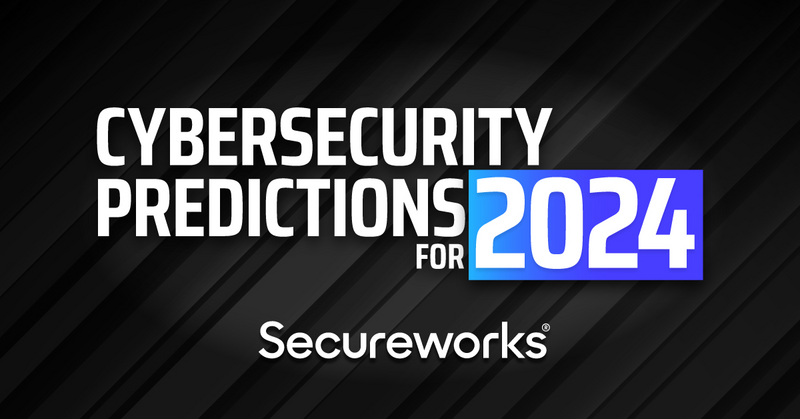Future-Proof Your Organization: Secret Cybersecurity Forecasts You Need to Know
As businesses face the increasing pace of electronic change, comprehending the developing landscape of cybersecurity is crucial for long-term durability. Predictions suggest a considerable uptick in AI-driven cyber risks, together with increased regulative scrutiny and the important change towards Absolutely no Depend on Style.
Surge of AI-Driven Cyber Threats

Among one of the most concerning advancements is using AI in producing deepfakes and phishing systems that are remarkably persuading. Cybercriminals can make audio and video material, impersonating execs or trusted people, to adjust sufferers into divulging sensitive details or licensing fraudulent deals. Furthermore, AI-driven malware can adapt in real-time to escape detection by conventional safety actions.
Organizations need to identify the urgent need to bolster their cybersecurity structures to battle these progressing risks. This consists of investing in innovative risk detection systems, cultivating a society of cybersecurity recognition, and implementing robust occurrence response plans. As the landscape of cyber risks transforms, positive actions become important for safeguarding sensitive information and preserving service integrity in an increasingly digital world.
Raised Focus on Data Personal Privacy
How can companies efficiently browse the expanding emphasis on information personal privacy in today's electronic landscape? As governing frameworks advance and consumer assumptions rise, services should focus on robust information personal privacy strategies.
Investing in worker training is crucial, as team understanding directly influences data security. In addition, leveraging technology to enhance information safety is crucial.
Cooperation with legal and IT teams is essential to align information privacy campaigns with service objectives. Organizations should likewise engage with stakeholders, including clients, to connect their commitment to data personal privacy transparently. By proactively addressing data personal privacy problems, services can develop count on and improve their track record, eventually adding to long-term success in a progressively inspected digital environment.
The Change to Zero Trust Design
In action to the progressing risk landscape, companies are increasingly embracing No Trust fund Style (ZTA) as an essential cybersecurity strategy. This technique is asserted on the concept of "never ever trust fund, always validate," which mandates constant confirmation of customer identities, devices, and information, regardless of their location within or outside the network boundary.
Transitioning to ZTA my blog entails executing identity and gain access to management (IAM) options, micro-segmentation, and least-privilege accessibility controls. By granularly controlling accessibility to sources, companies can reduce the danger of insider risks and reduce the influence of outside violations. Furthermore, ZTA encompasses durable surveillance and analytics abilities, allowing companies to identify and reply to abnormalities in real-time.

The change to ZTA is also fueled by the increasing adoption of cloud services and remote work, which have broadened the assault surface (7 Cybersecurity Predictions for 2025). Typical perimeter-based safety and security models want in this brand-new landscape, making ZTA an her latest blog extra durable and adaptive structure
As cyber risks remain to expand in refinement, the fostering of No Count on principles will be critical for organizations looking for to protect their properties and keep governing compliance while ensuring service continuity in an unclear environment.
Governing Adjustments imminent

Forthcoming laws are expected to deal with a variety of problems, consisting of data privacy, breach notice, and occurrence reaction procedures. The General Data Security Regulation (GDPR) in Europe has actually established a precedent, and comparable structures are emerging in other areas, such as the USA with the suggested government privacy legislations. These regulations usually enforce stringent charges for non-compliance, emphasizing the demand for companies to prioritize their cybersecurity actions.
Additionally, sectors such as money, medical care, and essential facilities are likely to face more rigorous requirements, showing the delicate nature of the data they take care of. Compliance will not just be a legal obligation but a crucial component of structure trust fund with customers and stakeholders. Organizations has read review to remain in advance of these changes, integrating regulative requirements right into their cybersecurity strategies to make sure resilience and safeguard their possessions efficiently.
Value of Cybersecurity Training
Why is cybersecurity training a critical part of a company's defense strategy? In an era where cyber risks are significantly innovative, companies should acknowledge that their employees are often the initial line of defense. Effective cybersecurity training gears up personnel with the expertise to determine potential dangers, such as phishing strikes, malware, and social engineering tactics.
By fostering a society of safety awareness, companies can dramatically decrease the threat of human error, which is a leading reason for information breaches. Regular training sessions ensure that staff members remain notified regarding the most up to date hazards and finest techniques, therefore improving their ability to respond appropriately to events.
In addition, cybersecurity training promotes compliance with regulative needs, reducing the threat of legal effects and monetary penalties. It additionally empowers staff members to take ownership of their function in the organization's safety structure, leading to an aggressive instead of reactive method to cybersecurity.
Conclusion
In verdict, the evolving landscape of cybersecurity needs positive actions to resolve arising risks. The surge of AI-driven assaults, paired with heightened data privacy concerns and the change to No Trust fund Design, requires a detailed approach to safety. Organizations has to continue to be watchful in adjusting to regulative adjustments while focusing on cybersecurity training for workers (cyber resilience). Emphasizing these techniques will certainly not only enhance business strength but additionally protect sensitive details versus an increasingly sophisticated array of cyber dangers.
Comments on “Understand new cyber attacks and how to prevent them.”